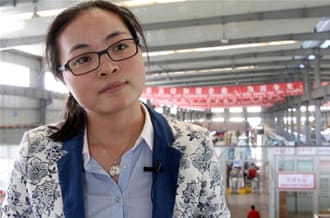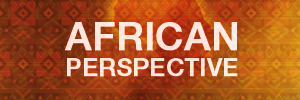By Abraasaa Dirree*
The problem with people who blab a lot is that they don’t have very
good memories. They blab so much and boast so much, and huff and puff so
much that they can’t possibly remember all the blabbing, boasting and
puffing.
This is the predicament the anti-OMN
Poster Boy finds
himself in at the moment. Devoid of courage to address the real issues
requiring structural explanations, he and few of his cohorts resorted to
focus on events – who did what to whom. As a result, the calibrated
attack on the OMN missed the opportunity to help us achieve more
accurate, more insightful, and more empowering view of reality. He and
his cohorts were wrong in essence and in substance. The planned
“knockout punch” at the time of launch did not materialize. The recent
hullabaloo is not getting any traction. So, the
Poster Boy resorted to non-stop whining with complete and reckless abandon, because of the following reasons:
• First, according to the
Poster Boy himself, his
recommendation to further delay OMN’s launch date was rejected by the
Organizing Committee. So, when the majority voted against his proposal,
instead of accepting the simple administrative decision, he left the
Committee. If he left on principled points, one would have reasoned with
him. Good people often disagree and part their separate ways. That is
not the case with the
Poster Boy. His refusal to accept such a
simple administrative decision means “my way or no way” attitude. This
is nothing, but dictatorship and anti-democratic inclinations.
• Second, he claimed that he did a research about satellite
providers, and considered the options and made recommendations to the
Governing Body. So, the Governing Body, based on the best available
information, decided on one of the options (not the one recommended by
him). So, what is wrong with that? Why this is a big deal? Is this not
how decisions are made?
• Third, the
Poster Boy has been kvetching, without
providing a scintilla of evidence, alleging that OMN’s money is being
siphoned by an individual. I cannot conjure his motivations for such
outlandish charges; however, one thing is certain; he is hell-bent on a
mission to kill the OMN – nip it in the bud – commit an act of
infanticide – through nonstop, persistent whining and planting the seed
of doubt in the minds of the contributors. Why in this world would any
Oromo wants to kill the OMN – the only Oromo centric national TV in this
wide world? For whose benefit? I wonder why the Tigreans should waste
their money on turncoats, when Oromos continue to self-destruct, time
and again – thanks to the likes of the
Poster Boy.
• Fourth, more importantly the
Poster Boy is whining because
according to him his good name was smeared by certain OMN supporters?
When a reporter asked him, what recommendations he had for OMN, he
blurted that they should stop besmirching his good name and that those
like him who left the OMN should be allowed back. Hell no! OMN does not
need him. He represents the views of the past, of hatred, of negativity,
resulting in the national shame in which we find ourselves in today.
That is the legacy of the
Poster Boy’s generation. While our enemies are finding new ways and means to keep us down, the likes of the
Poster Boy
of this world are perfecting the propensity for Oromos to
self-destruct. Such are the leeches that continue to suck oxygen from
the Oromo national struggle, time and again.
To the OMN supporters, you would agree with me that organizational
maturity does not happen overnight. From birth to a steady
institutionalization stage takes time. So, organizations – profit or
not-for-profit – do not mature in a day. As they say, “Rome was not
built in a day.”
As you probably know, at the beginning, organizations are not up to
speed on governance and administration issues. As well most processes
are informal –
ad hoc, chaotic and inconsistent. Governance is
not properly in place, and change management is not yet created. Fear
and uncertainty is high as organizational values and culture have not
yet been established. As people coming to the organization with their
own unique personalities, it takes a while for soft capabilities such as
social skills, experience, creativity, social cohesion, social capital,
values, motivation, habits and traditions to gel with institutional
culture. So, OMN is no different. It’s going through organizational
“teething” phase.
Ours is further complicated by lack of experience in running Oromo
centred organizations. We have been conditioned to take orders and obey
our masters, so we carry some baggage. This is the mentality of the
oppressed, which manifests itself in different forms, such as lack of
respect for one another, superiority complex, lack democratic
traditions, lack of Oromo centric bureaucratic traditions, what have
you, what have you.
Moreover, when it comes to Oromo affairs, all lay persons present
themselves as experts on everything. They all want to direct the affairs
of OMN, and how the journalists should carry out their work, etc, etc.
We have to learn to trust the ability and capability of our learned men
and women and that they are good enough to do the job required of them.
After all, these are the
crème de la crème of our best minds. Let us give the leadership the benefit of the doubt.
Whether one likes it or not, Jawar is the face of the OMN. Through
the “I’m Oromo First” tour, he galvanized the entire Diaspora. He
promised. He delivered. That is what leadership is all about. Most of us
believed in him and trusted him, and those young men and women
supporting him behind the scene. He is doing the right thing?
Absolutely, yes! He is doing things right? I don’t know as I don’t work
with him. Moreover, doing things right is managerial issues that can be
corrected through rules, regulations and processes. Some of us saw this
as a generational shift, while the
Poster Boy types want to impede the inevitable.
Regarding the assertion that certain inexperienced young men and
women are running the show, I agree they are young and inexperienced.
Let them do some screw-ups; they will learn and grow from it. In
comparison, what did the experienced
Poster Boy generation give us? How did I forget –
Listserv?
My final point to the
Poster Boy: if you think that you have
the stature to measure up to Jawar (I meant figuratively, not
literally), stop conniving, and go ahead and form your own media. And
call it OMN. After all, bickering and splitting organizations is the
hallmark of your generation.
I’m also astonished at how some of the amateurish and substandard
Oromo radio and TV personalities, who should not have seen the light of
day in terms of style and substance, also joined the fray with reckless
and complete abandon. One does not have to be a rocket scientist to
observe that this is the manifestation of jealousy in its absolute form.
The OMN made them irrelevant, and by comparison, they look shoddy,
crude and unprofessional.
Finally, here is my unsolicited and humble advice to the OMN leadership:
• The issues are all about human resources administration. So, you
have already dealt with it, and if further action is required deal with
it, as this is an internal organizational matter, we don’t want to know
the details. Moreover, organizations don’t wash their dirty laundry in
public.
• You have done enough explaining, once or twice is more than enough.
You have already admitted to certain governance issues. So, fix it.
There is no need to repeat the same points again and again. All you are
doing is strengthening the hands of the
Poster Boy. Again, we
don’t need the details, and all we want to know is that you are in
control of things and that you are taking care of business.
• You have to understand and accept the fact that those who don’t
like OMN will never settle for a reasoned argument. So don’t waste your
time in trying to win them over, as they have different agenda. That is
exactly why the
Poster Boy sounds like a man who believes the
solution to inequality in a community with only one cow is to kill the
animal and have none. This is why he and his cohorts concocted and
foolishly injected religious and cultural dimensions hoping to get some
traction by obfuscating the real issue. The good news is that we are not
that gullible after all.
• You have to accept the fact that you cannot please everyone. So, ignore the innuendos, such as the one coming from the
Poster Boy.
After all, he is not a member of the Board. He is not a member of the
Executive. He is not a staff member. He is just an attention seeker, who
wants to remain relevant in Oromo affairs by “crying wolf, where there
is no wolf.”
• Finally, I know that Oromos believe in what you do and some of us
sincerely appreciate your dedication, commitment, sacrifice and
perseverance.
Long live OMN!
Abraasaa Dirree: abraasaa.dirree@gmail.com
=>finfinnetribune










